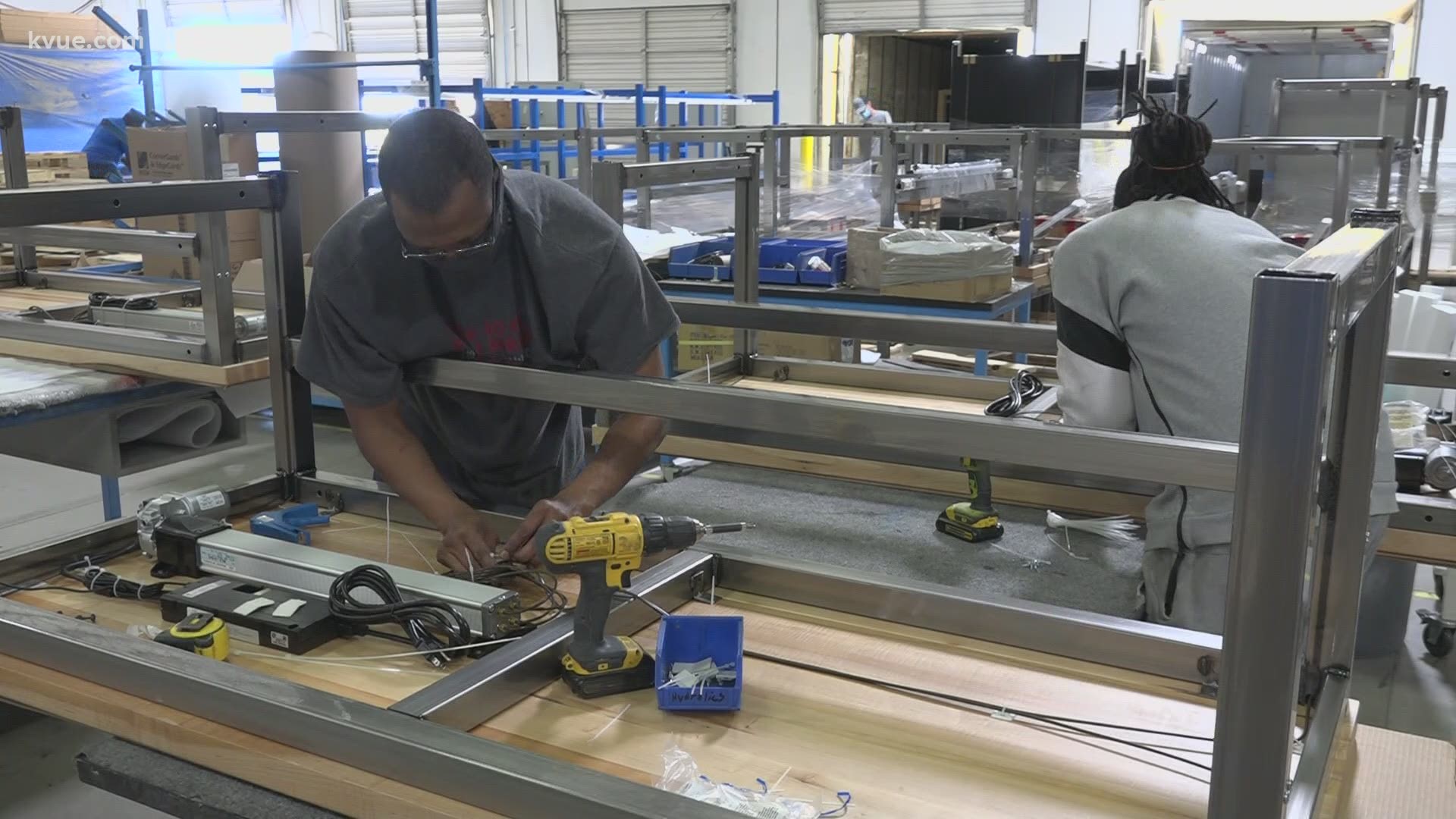AUSTIN, Texas — In a new report released on Monday by Dallas Fed, Texas manufacturing executives marked their highest outlook on the industry since mid-2018.
In the Fed's Texas Manufacturing Outlook Survey 17-year history, the report claims the production index from manufacturing leaders had never been higher. This data, along with greater demand in "New Orders," suggests the manufacturing industry will continue to grow, rather than March being an unusual marker.
"You're seeing just a ton of optimism – a lot of new orders, a lot of companies that have been sitting on the fence with contracts and deals, and they're seeing those actually get done and completed now," Ed Latson, who heads the Austin Regional Manufacturers Association, said.
Two Austin-based manufacturers have seen remarkable growth throughout the pandemic, despite the hit the rest of the nation and Texas economy took. Formaspace CEO Jeff Turk said the company is on pace for 30-40% growth year-over-year. Cypress Industries founder and CEO Tom Lonsdale said his company is on course for 70-90% growth after increased demand since December.
"We saw a big movement away from our biggest growth, which is in custom office furniture, towards laboratories," Turk said. "You can't work in your laboratory from home, as you might imagine, and you can't discover therapies and cures for COVID or a new vaccine or something like that from home. People still have to go to those labs, and so our business translated almost entirely to laboratory furniture for a while."
Over the past few weeks, Formaspace has started to take more office furniture orders. Turk attributes that to businesses getting ready to go back to their office spaces, and/or companies trying to entice their workers to come back on some sort of regular basis.
"March orders have been starting to pick up steadily," Lonsdale said. "I think a lot of that is due to not only our customers' increase in demand, but people wanting to plan stuff further out to ensure continuity of supply chain for orders going out through the end of the year."
Lonsdale, Turk and Latson all say supply chain disruptions have been the biggest challenge to overcome. The monthly Dallas Fed report notes it too.
"The raw materials prices index rose from 57.4 to 66.0 amid continued reports of supply-chain disruptions driving up costs," the report said. "The finished goods prices index climbed nine points to 32.2, its highest reading since 2008. The wages and benefits index posted a double-digit increase, rising 12 points to 28.0."
While one does not cause another, Latson and the Dallas Fed report took note of the combined industry optimism, economic confidence, access to COVID-19 vaccines and the hopeful end to the pandemic too.
"I would say definitely, yes, there is a correlation," Latson said. "Although the manufacturing sector has been very strong through the pandemic, there's been a lot of growth in this sector, but what we're seeing optimism and the sentiment out of leaders right now is far surpassing that."
PEOPLE ARE ALSO READING:

